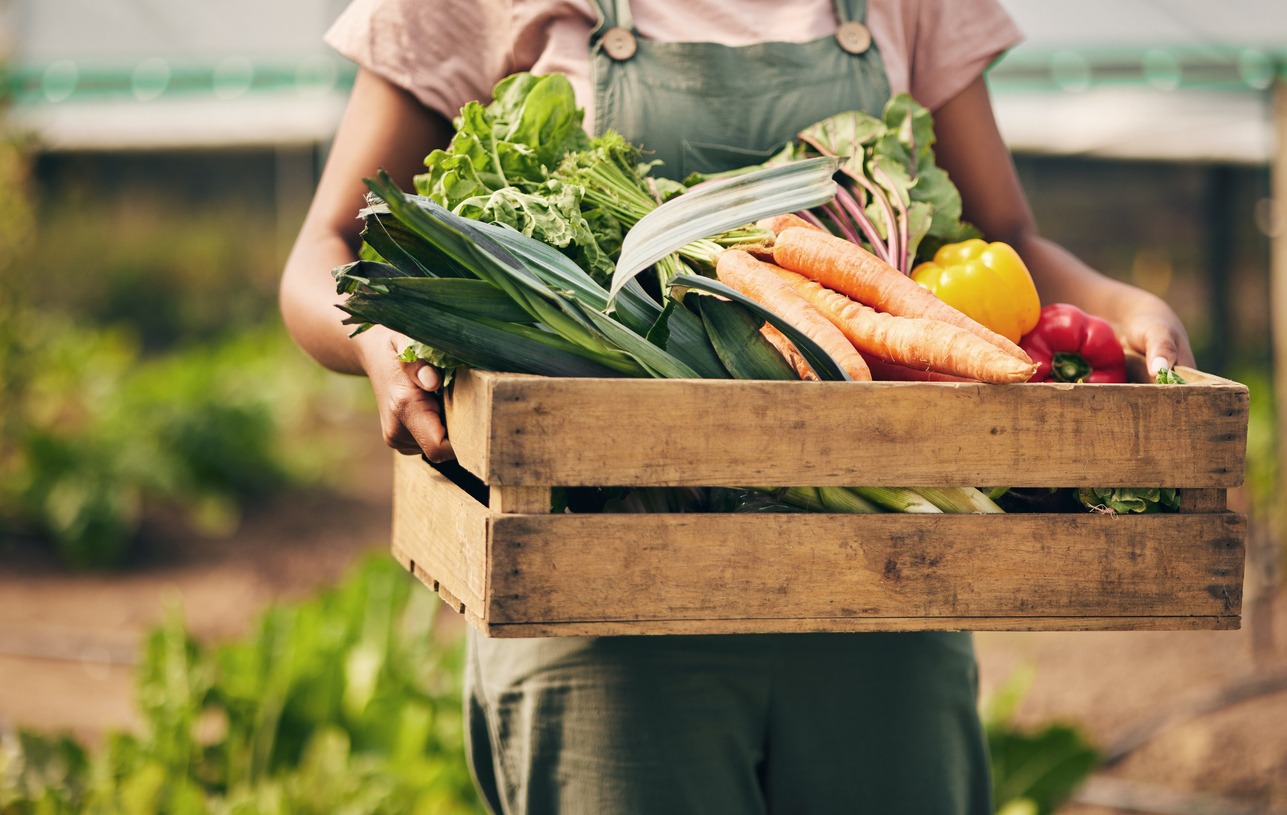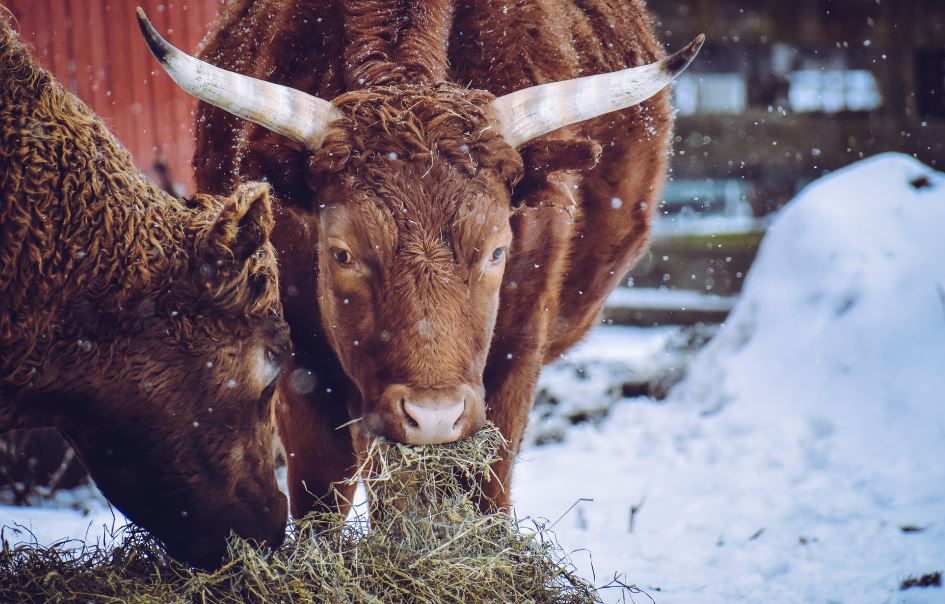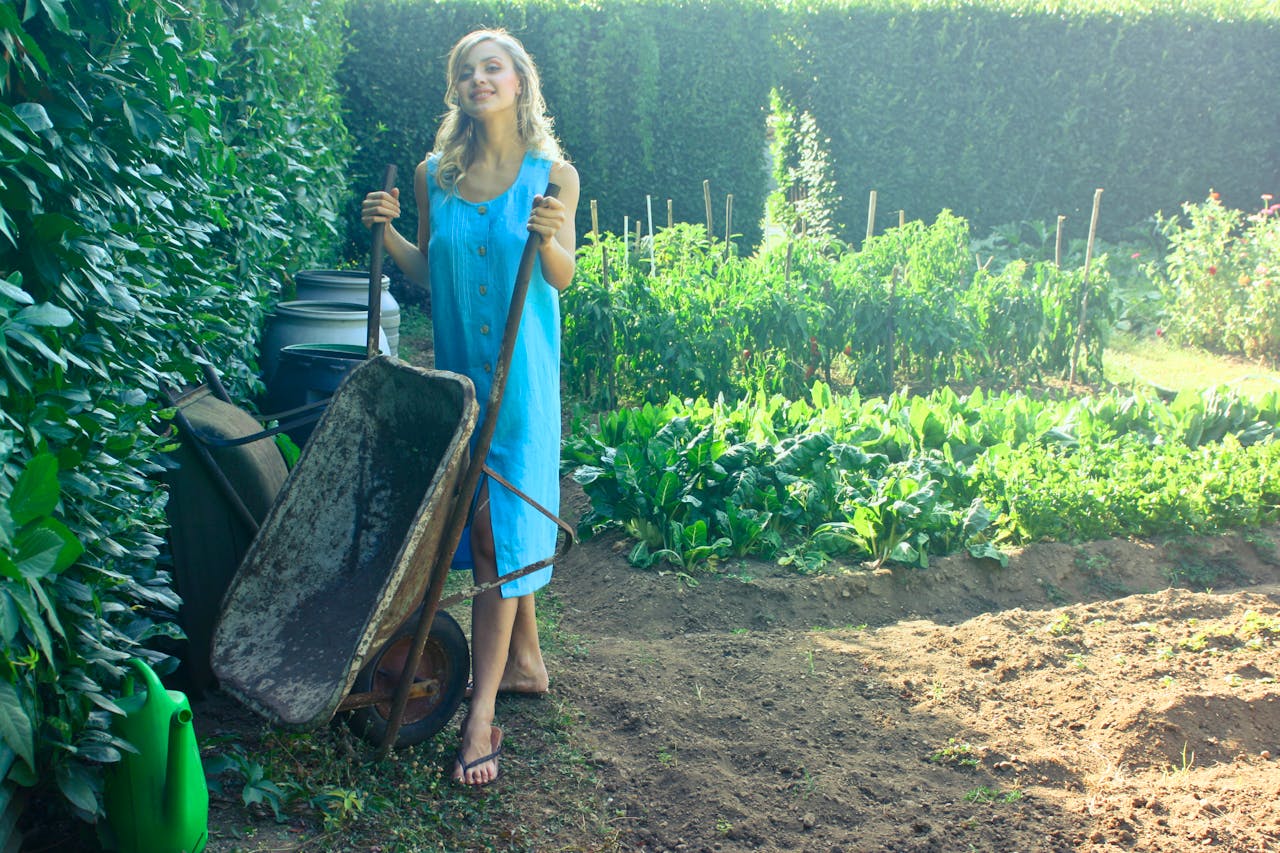Animals You Might Find on a Modern Homestead
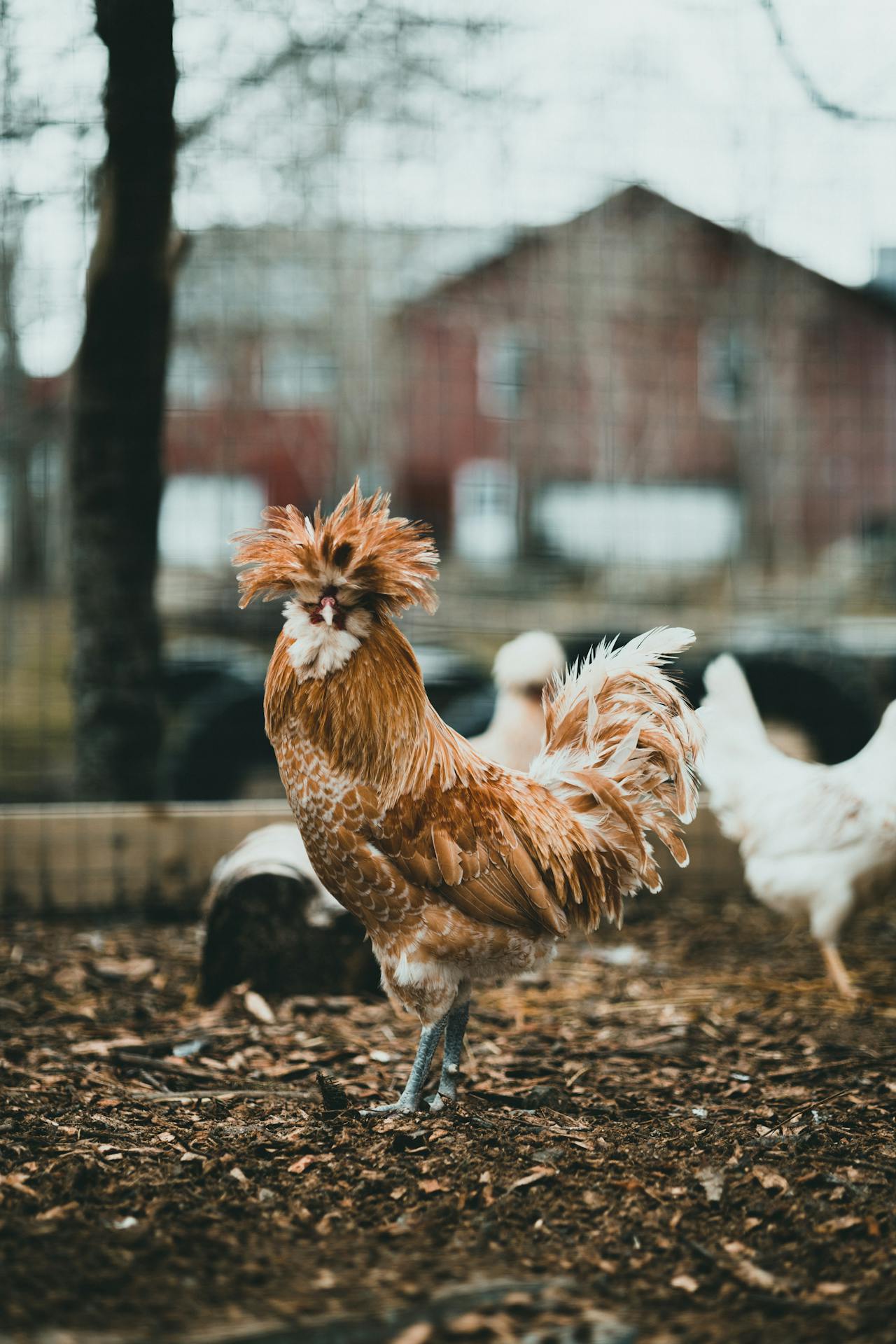
On a modern homestead, animals are more than just companions—they're key contributors to a sustainable lifestyle. Each type of animal brings unique benefits, from food production to land management, making them invaluable assets for anyone aiming for self-sufficiency. However, just as important as their benefits are the responsibilities they entail. Here’s a guide to help you understand the essential animals for a modern homestead, what they can offer, and what they need from you.
Chickens
Picture this: a backyard alive with the sounds of clucking and scratching as chickens roam, doing what they do best—turning scraps into eggs and helping keep pests at bay. Chickens are often the first animal new homesteaders add, and for good reason. These feathered friends offer a reliable supply of eggs, meat, and fertilizer, all while being relatively easy to care for.
Why Chickens Are Essential:
- Egg and Meat Production: A steady source of protein for your family, chickens produce eggs daily, and certain breeds are also excellent for meat.
- Scrap Management: Chickens are natural recyclers, happily eating kitchen scraps and garden leftovers that might otherwise go to waste.
- Pest Control: Chickens love to scratch around, helping control insect populations in your yard or garden.
Care Essentials: Chickens need a secure coop with nesting boxes and roosting bars. They thrive on a balanced diet of grains, greens, and occasional protein snacks like bugs or mealworms. Many breeds are highly adaptable, but it’s important to choose those suited to your climate and homesteading goals. If eggs are the focus, consider breeds like Rhode Island Reds or Leghorns. For dual-purpose chickens, Orpingtons and Plymouth Rocks are popular choices.
Ducks and Geese
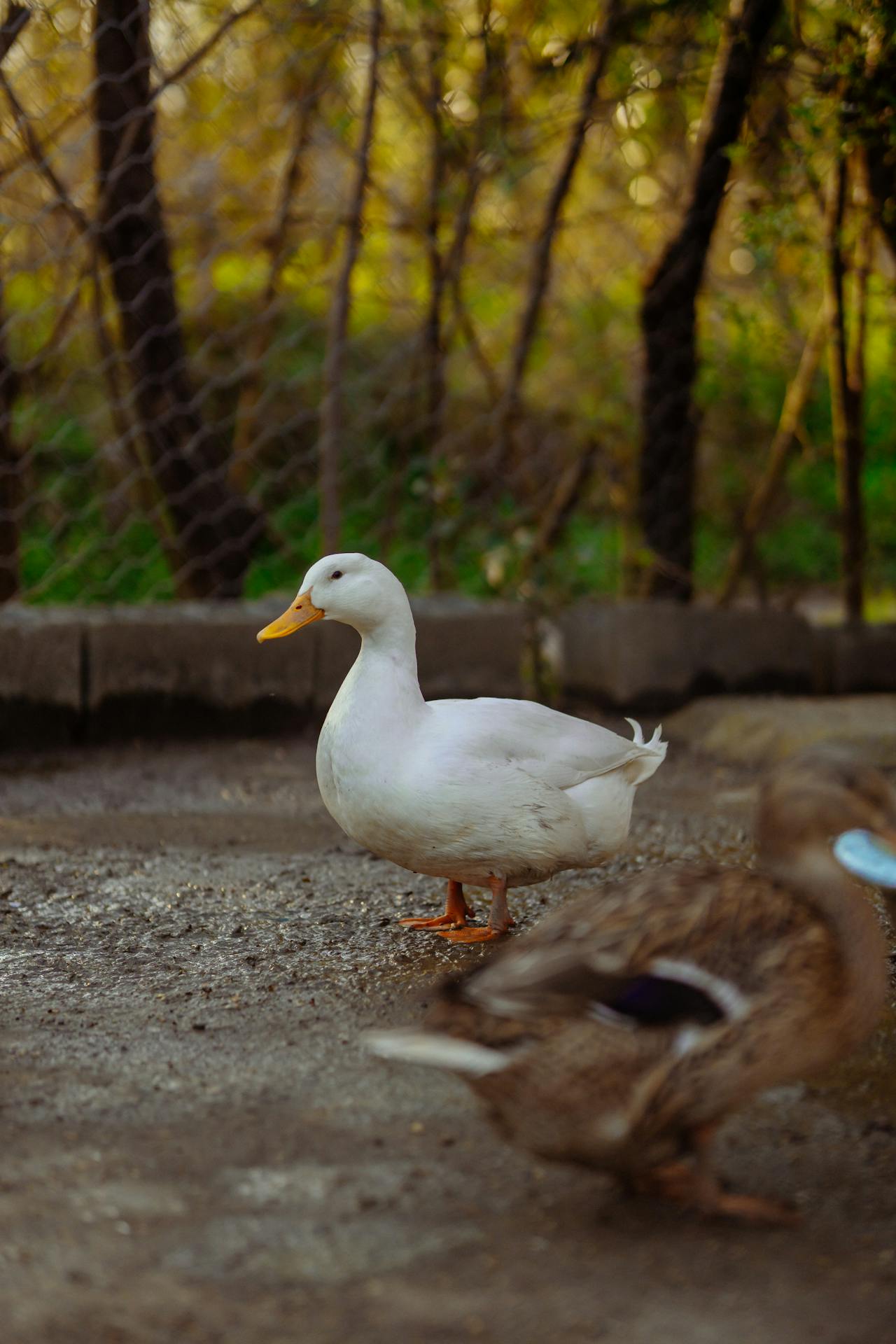
Chickens may be the most popular choice, but ducks and geese are incredibly useful additions to a homestead. Ducks thrive in watery environments and produce eggs that some people prefer for baking. Meanwhile, geese bring extra security and land management skills to the homestead.
Why Add Ducks and Geese:
- Egg Production in Winter: Duck eggs are known for their richness, and unlike chickens, many ducks continue laying eggs even in colder months.
- Guarding Abilities: Geese are natural “watchdogs” for the homestead. Their honking can alert you to visitors or potential predators.
- Weed Control and Pest Management: Ducks enjoy eating slugs, snails, and other pests, making them perfect for natural pest control in wet or shaded areas of your property.
Care Essentials: Ducks need access to water, ideally a small pond or kiddie pool, to clean their feathers and maintain good health. They’re relatively low-maintenance but require protection from predators at night. Geese, while low-maintenance and protective, are territorial and need space to roam. Both waterfowl types benefit from a simple shelter, dry bedding, and a balanced diet.
Goats for Milk and Meat
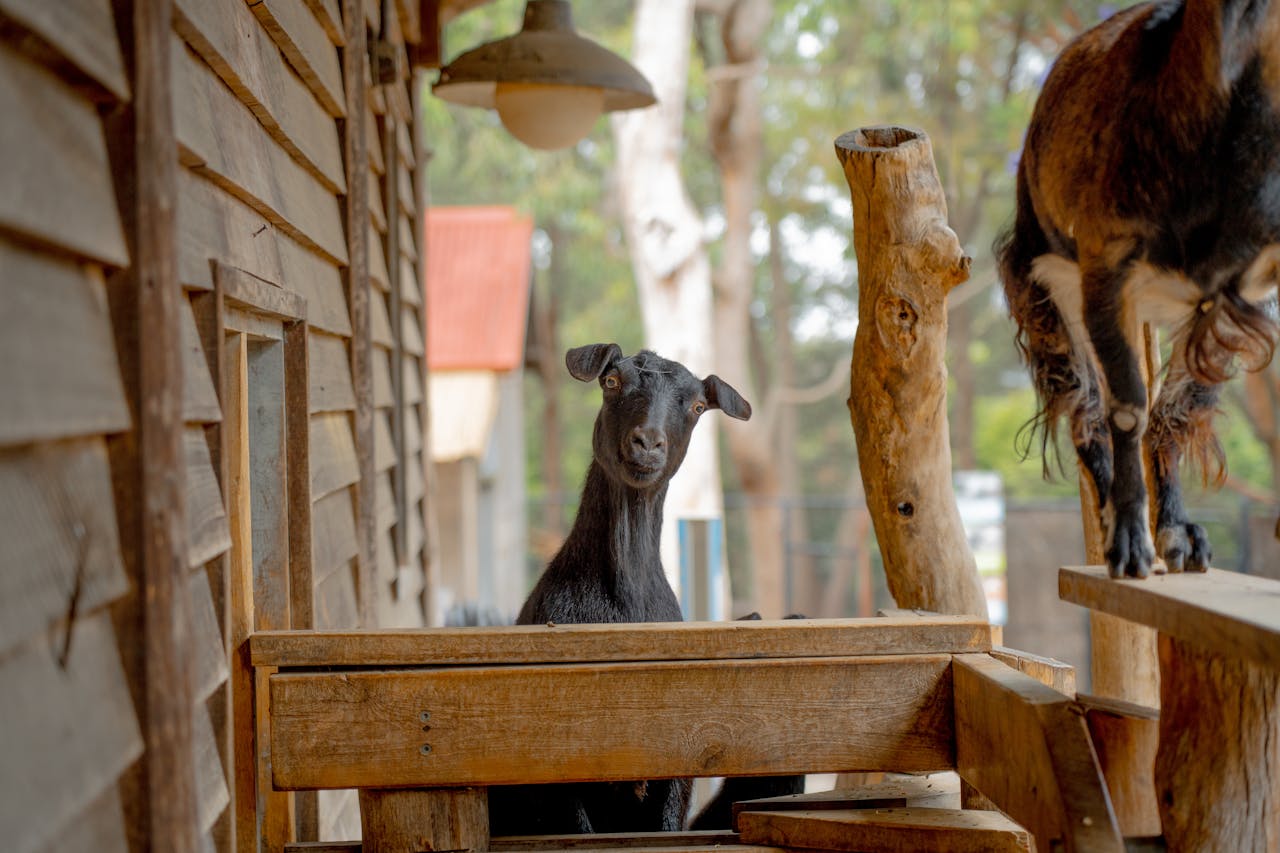
If you’re ready for a more interactive homesteading animal, goats are highly versatile and rewarding. They’re known for their friendly personalities and adaptability to various environments, making them perfect for homesteaders with limited space or resources.
Benefits of Keeping Goats:
- Milk Production: Dairy goats produce high-quality milk, which can be used to make cheese, yogurt, and even soap.
- Land Management: Goats are natural foragers who love to eat weeds, brush, and overgrowth, helping to clear land and manage vegetation.
- Meat Production: If your goal is meat, specific breeds like Boer goats provide excellent yields.
Care Essentials: Goats need sturdy fencing and shelter, as they are known escape artists. They thrive on a diet of hay, grains, and fresh water but will happily forage on almost any green plant. Regular hoof trimming, vaccination, and parasite control are also essential. Popular breeds for milk production include Nubians and Alpines, while Boer and Kiko goats are great for meat.
Sheep

Sheep offer unique dual-purpose benefits, making them a versatile choice for homesteaders interested in wool, meat, and even milk. They are relatively easy to care for and provide various products that can boost both your self-sufficiency and creativity.
Why Sheep Are Valuable:
- Wool Production: With the right breed, you can spin wool from your own sheep, creating textiles or yarn for knitting and weaving.
- Meat and Milk: Sheep meat is highly nutritious, and some homesteaders enjoy using sheep’s milk for unique dairy products.
- Land Management: Like goats, sheep graze on various plants, making them excellent for land maintenance and weed control.
Care Essentials: Sheep require secure fencing, as they tend to be followers and may wander if they see an open pasture. They need ample grazing space and regular shearing if they’re wool-producing. Consider breeds like Merino for fine wool or Katahdin for meat. Like goats, sheep benefit from regular hoof trimming and parasite control.
Pigs
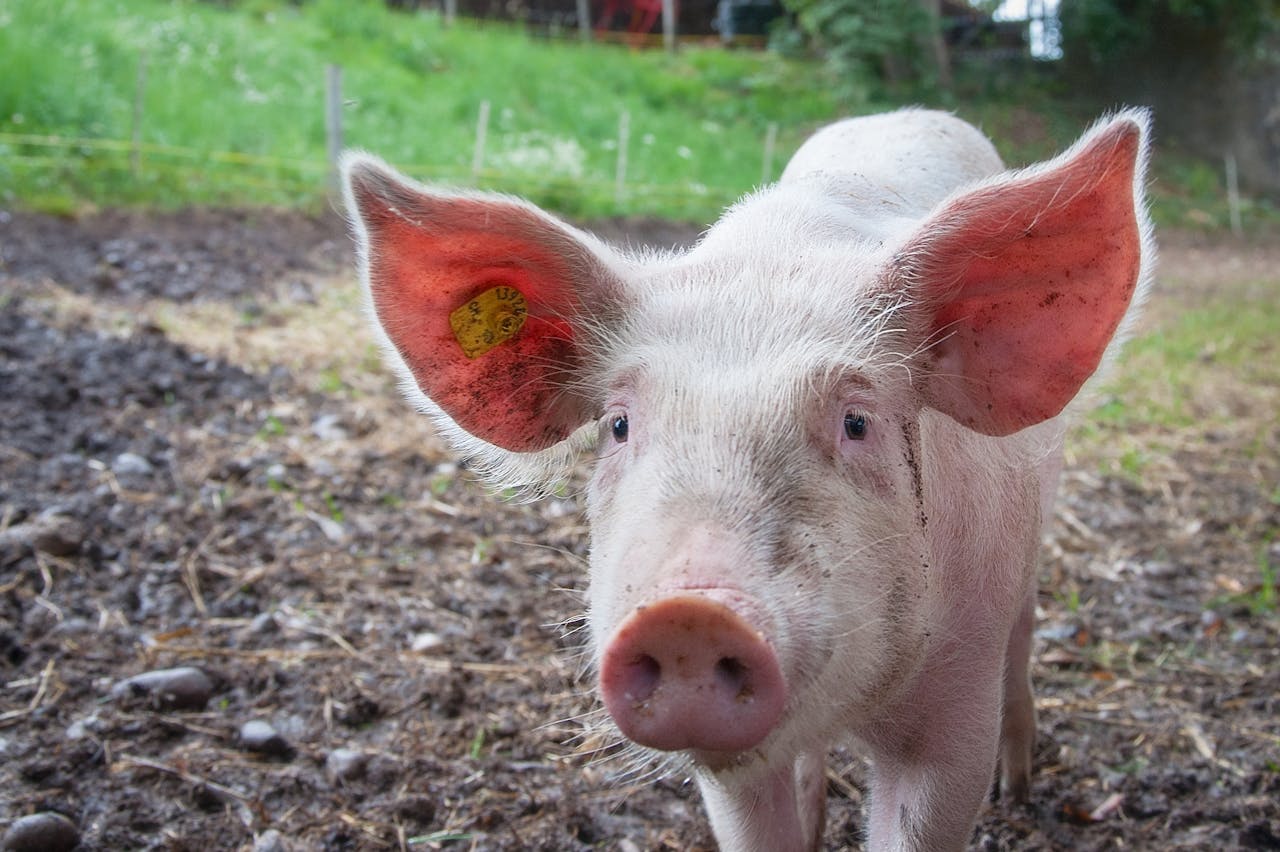
Pigs are the powerhouses of meat production on a homestead. While they require a bit more work than smaller animals, they offer an impressive yield of pork, lard, and even land-tilling services.
Why Pigs Are a Great Investment:
- Meat and Lard Production: Pigs provide high-quality pork and can be a significant source of lard, which can be used in cooking or as a base for soap.
- Land Preparation: Known as natural “plows,” pigs till the soil as they root, which can help prepare land for planting.
- Diet Flexibility: Pigs can thrive on kitchen scraps, garden waste, and other inexpensive food sources.
Care Essentials: Pigs need sturdy, escape-proof fencing and shelter from extreme weather. They’ll also require a clean water source and access to a wallow (mud pit) to cool off. Heritage breeds like Berkshire and Tamworth are known for their flavorful meat and adaptability to pasture-raising.
Rabbits
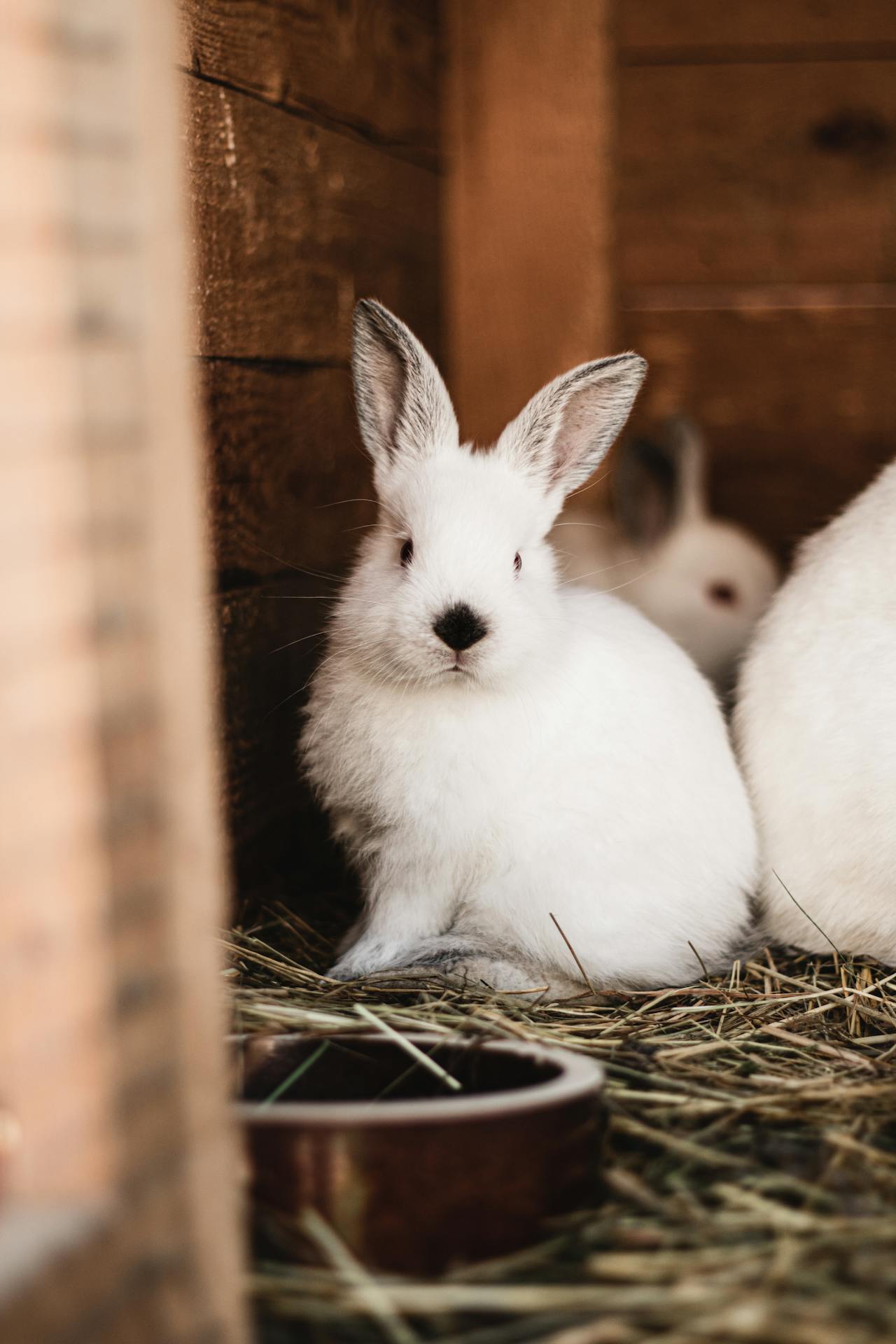
Rabbits are compact, quiet, and produce both meat and fur, making them an ideal choice for small homesteads or urban settings. They’re low-maintenance animals with high reproduction rates, making them valuable for anyone seeking efficient meat production.
Why Rabbits Are Ideal for Small Homesteads:
- Meat Production: Rabbit meat is lean, healthy, and relatively easy to produce, providing a protein-rich source of food.
- Fur Production: Angora rabbits produce a luxurious fiber that can be spun into yarn, adding an artisanal element to your homestead.
- Compact Size: Rabbits require little space, making them ideal for small-scale setups or backyard homesteads.
Care Essentials: Rabbits need secure, predator-proof housing and a steady supply of hay, vegetables, and fresh water. They’re particularly low-maintenance but do need protection from heat and cold. For meat, consider New Zealand or Californian breeds, while Angoras are perfect for fiber production.
Cattle for Larger Homesteads
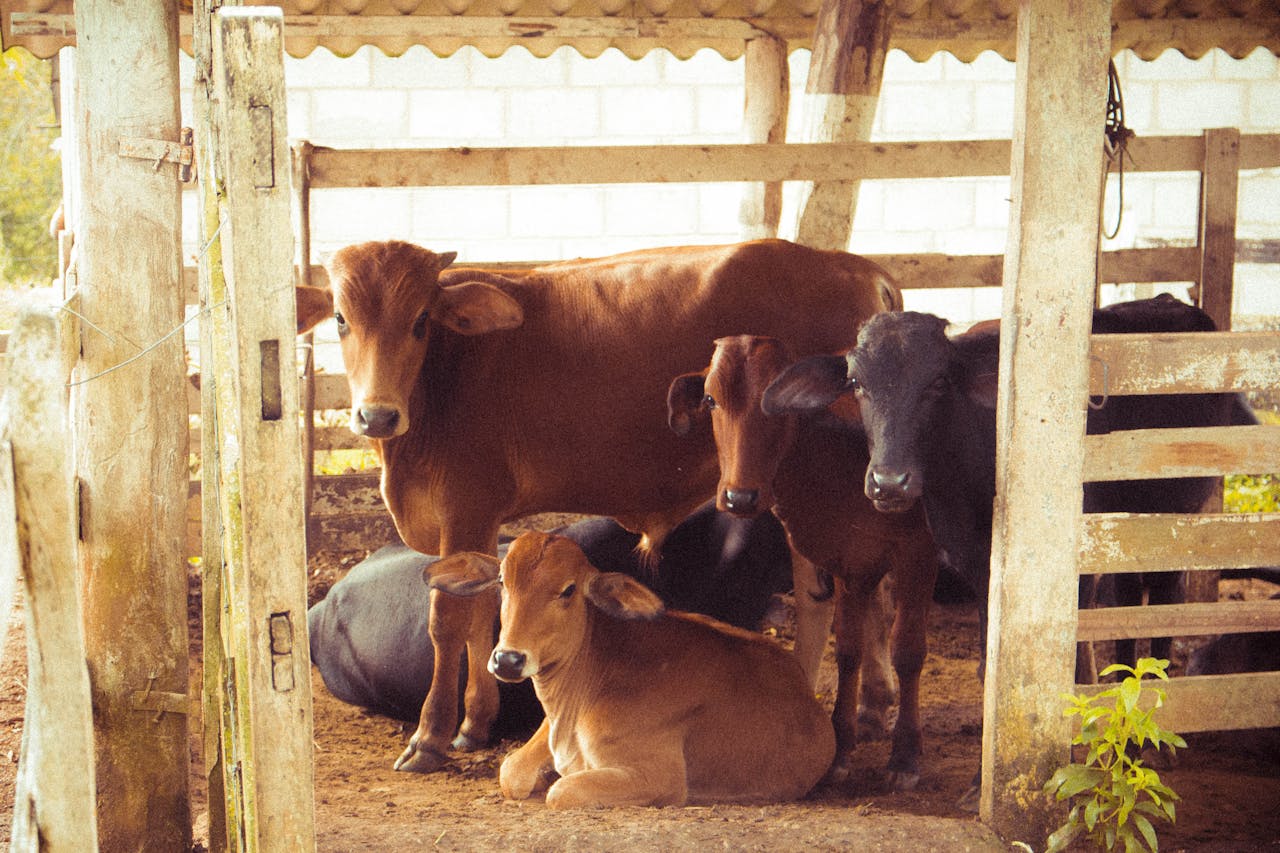
Cattle are versatile producers of milk, meat, and manure, but they require more space and resources than other homestead animals. They’re best suited to homesteaders with larger plots of land who are looking for significant contributions to their food supply.
Why Cattle Are Worth the Investment:
- Milk and Dairy Production: Cows can produce gallons of milk daily, which can be transformed into cheese, butter, and yogurt.
- Beef Production: For meat-focused homesteaders, raising cattle can provide a substantial supply of beef.
- Fertilizer: Cow manure is nutrient-rich and can be composted to improve soil health, benefiting garden crops.
Care Essentials: Cows need pasture space and ample fresh water. Dairy breeds like Jerseys are great for milk, while Angus is known for beef quality. Regular hoof care, vaccinations, and parasite management are essential, as is a sturdy fence to prevent escape.
Quail
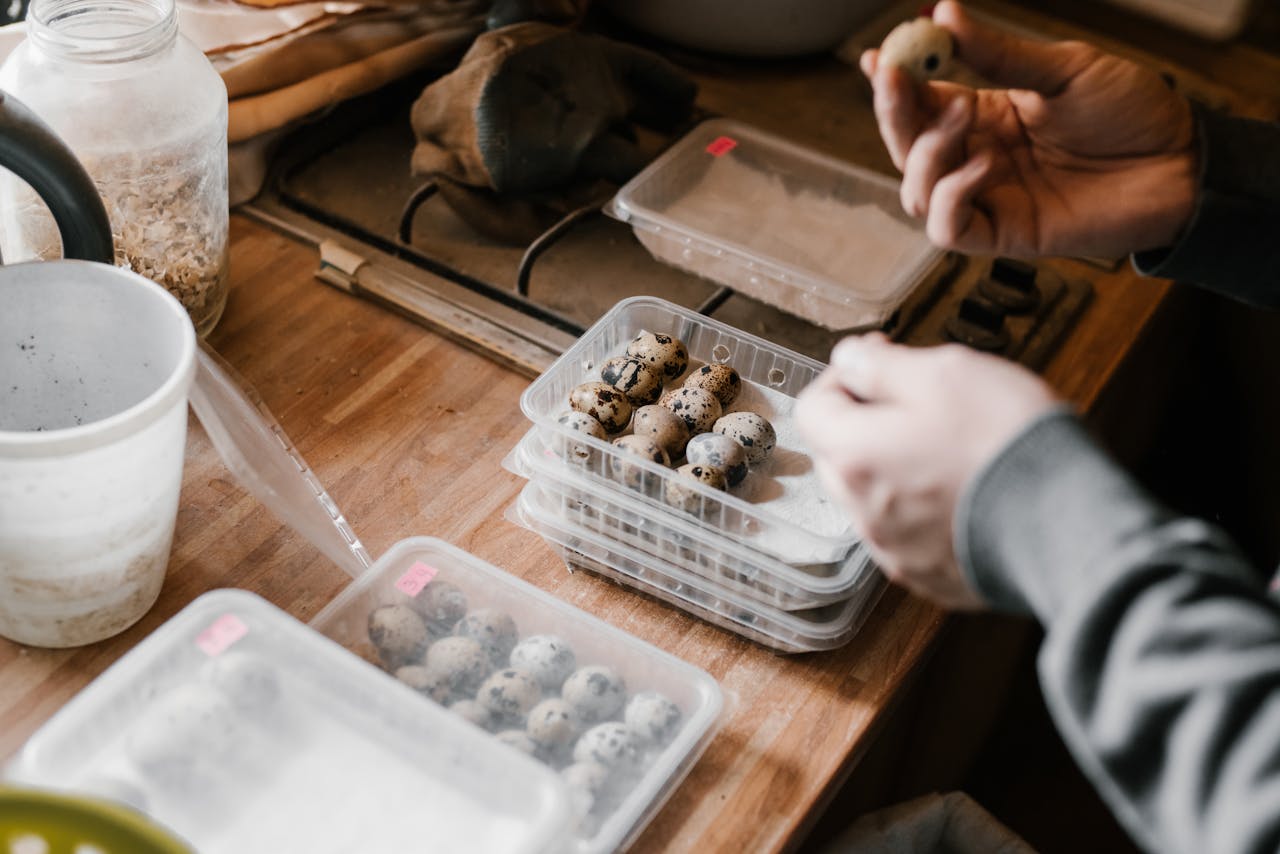
For homesteaders with limited space, quail are ideal egg producers. These small birds are efficient layers, producing dozens of eggs in a compact area. Quail are also easy to raise and require minimal maintenance compared to larger poultry.
Why Quail Are Perfect for Small Homesteads:
- High Egg Production: Quail are prolific layers, providing a steady supply of protein-rich eggs.
- Space Efficiency: Quail can be raised in small coops, making them perfect for urban homesteads or limited spaces.
- Meat Production: Quail meat is lean and tasty, providing an additional source of protein.
Care Essentials: Quail need a secure cage with mesh wire to protect them from predators. They are best suited to small, sheltered spaces with good ventilation. Coturnix quail are hardy and easy to care for, making them a popular choice among homesteaders.
Conclusion
Incorporating animals into a homestead is a journey toward self-sufficiency that requires dedication, responsibility, and planning. Each animal, from chickens to cattle, offers unique contributions that can help sustain your household and foster a deeper connection with the land. By understanding the needs and benefits of each, you’ll be better prepared to create a thriving, sustainable homestead that supports your self-reliant lifestyle.
Whether you’re working with a backyard or several acres, choosing the right animals will enrich your homesteading experience and bring you closer to a balanced, self-sustaining life.

